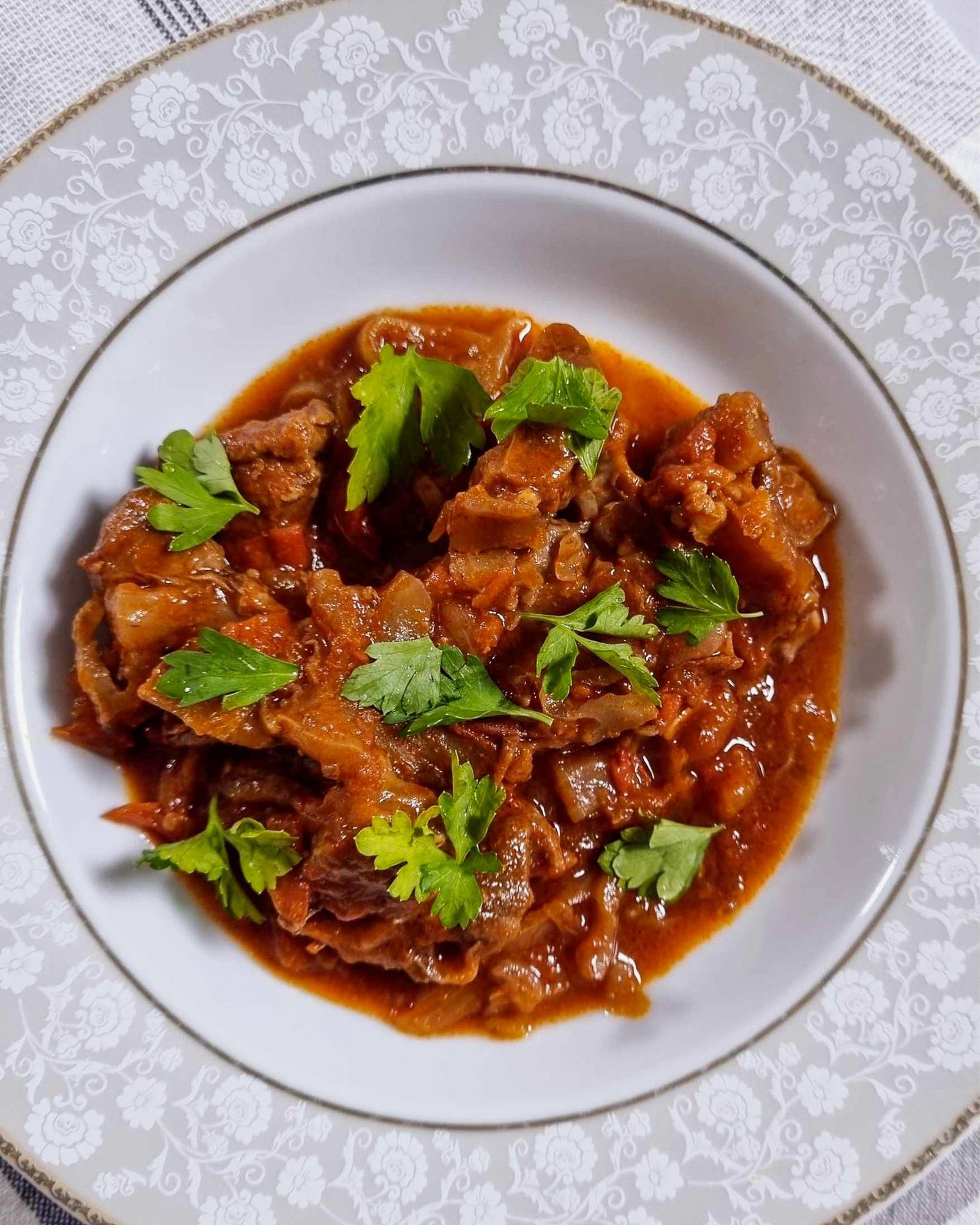
Newsletter Subscribe
Enter your email address below and subscribe to our newsletter

Enter your email address below and subscribe to our newsletter
Today, we are making one of my favourite recipes of all time. Osso buco, this delicious recipe is hearty, comforting, and incredibly flavourful. This dish is often served over creamy mashed potatoes at bistros, trattorias, and fine-dining restaurants across Italy.
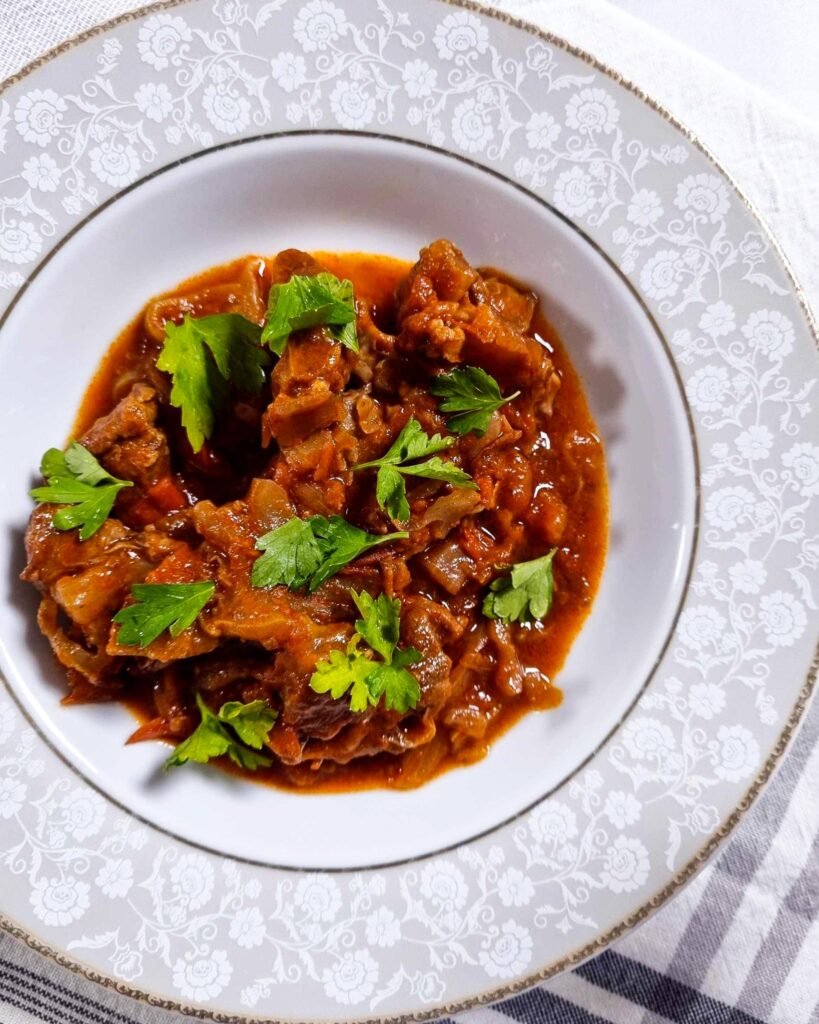
Osso buco is one of those iconic Italian dishes that embody Italy’s incredible flavours. So where did this recipe come from? Osso Buco originated from Lombardy, Milan. It appeared in the 19th century. It was a popular dish for families across the region, mainly since it used inexpensive cuts of veal shank.
As it simmered, the meat softened and absorbed the juices of the broth, onions, tomatoes, and spices. This created a very flavourful and comforting experience for the locals.
The significant differences between beef shank and veal shank are the age of the meat. Beef shanks come from cattle over the age of 2 years. Whilst veal shank is from young calves. The size, texture, and connective tissue will vary accordingly—the younger the calf, the softer the meat.
Veal shank will cook faster than beef shank. How much faster? Veal shank will take approximately 1 hour and 50 minutes to cook as the total simmer time. On the other hand, beef shank will take three to four hours on medium-low heat. It is best to bake the beef shanks in a heat-proof pot in the oven.
What is the difference in flavour between beef shanks and veal shanks? Beef shanks have a meatier flavour, whereas veal has a softer, more subtle flavour profile. If you haven’t tried veal yet, we suggest you do. The meat is tender, and the collagen is less chewy than beef shanks.
Veal shanks, Onions, Tomatoes, Garlic Cloves, Celery, Tomato paste, Balsamic vinegar, Worcestershire sauce, Beef stock, Salt, Bay leaves.
When selecting shanks for osso buco, look for cross-cut veal shanks that are approximately 4 to 5 cm (1 to 2 inches) thick. Ask the butcher for hind shanks, which are meatier with a larger yield, whereas fore shanks are smaller. However, use whatever you have on hand or available at the butcher.
The marrow in the osso buco is located in the central part of the round bone. It is essential to find a solid, intact bone with a full marrow centre. The colour of veal is light pink to pale red. The fat is often white or slightly creamy. For a tastier meal, purchase veal with noticeable collagen; a good amount will provide rich flavour for the gravy.
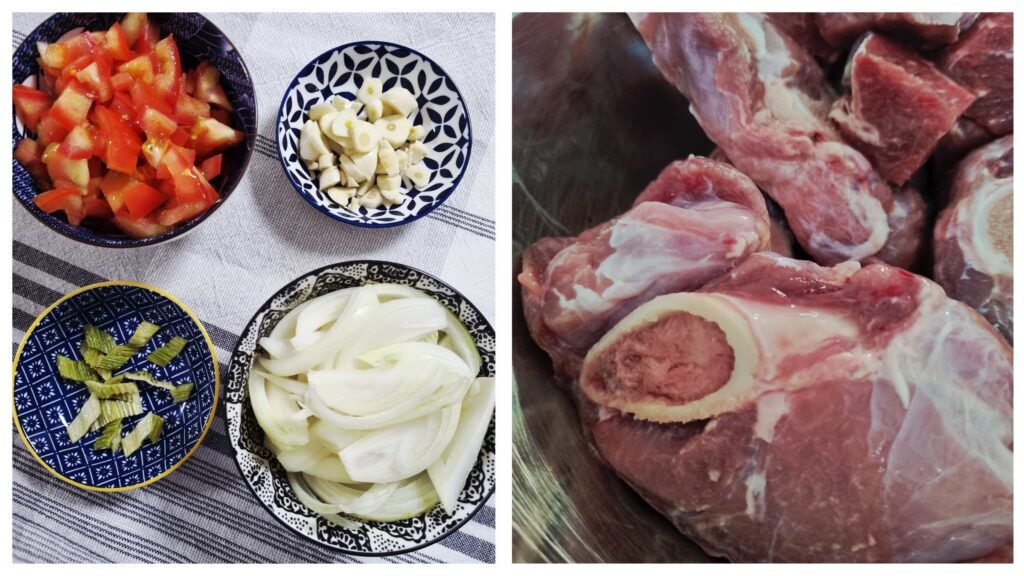
In traditional osso buco recipes, Italians use red wine. For this recipe, we are using a combination of balsamic vinegar, Beef stock, and Worcestershire sauce. Fresh tomatoes, along with tomato paste, enhance the flavor of the osso buco. Celery adds a savoury taste. Onions and garlic are caramelized to add a subtle sweetness. Since this dish takes 1 hour and 50 minutes to cook on the stove, consider adding more protein to this dish in the form of veal cubes.
Start by slicing the onions, garlic cloves, and celery. Chop the tomatoes and wash the veal shanks thoroughly. Add the veal shanks to a large dish and dust with white flour. Make small incisions along the sides of the veal shank to prevent the meat from curling during cooking.
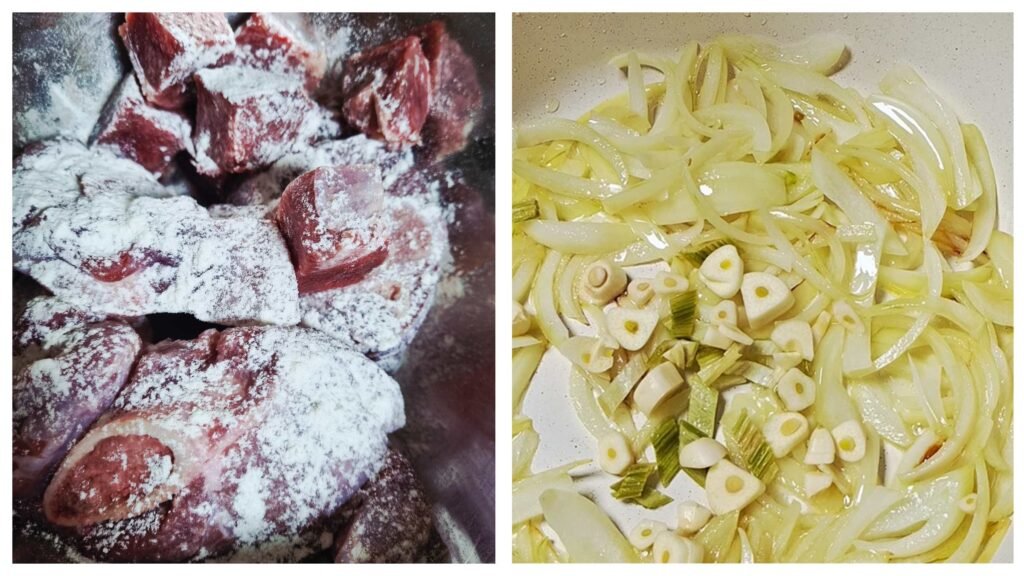
Add cooking oil to the pot and set the stove to medium-low. Add the onions, celery, and garlic, and sauté for 8 to 12 minutes, until lightly caramelized. Once it is golden, remove the onions, garlic, and celery onto a plate and set aside. Add more cooking oil to the pan. This process will add the aromatics’ flavour to the pot, intensifying the veal shanks’ taste.
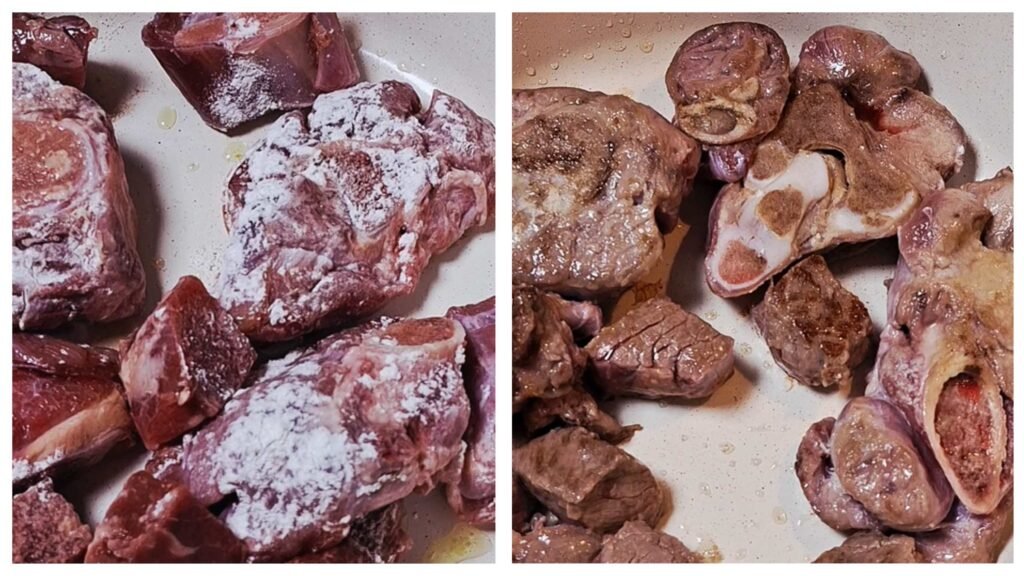
Add the veal shanks to the pot and let them rest directly on the heat for 1 to 2 minutes. Lightly lift the shank to check the colour; if it is browning well, flip over to the other side. This step should take four to five minutes on medium-low heat. Once the meat is browned, add the Worcestershire sauce and balsamic vinegar; the flavours will meld with the meat, creating a richer experience. Ensure you mix well, then sauté for 1 to 2 minutes. Add the caramelized onions, celery, and garlic to the meat.
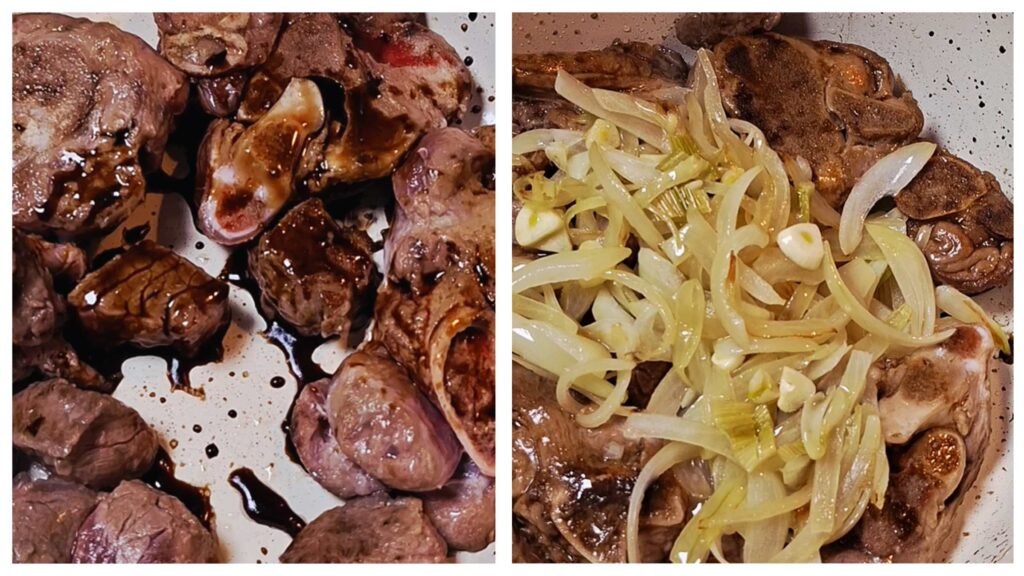
Add the chopped tomatoes, Beef stock cube, and bay leaves into the pot along with the tomato paste. Add 1/2 cup of water and stir until the ingredients are combined.
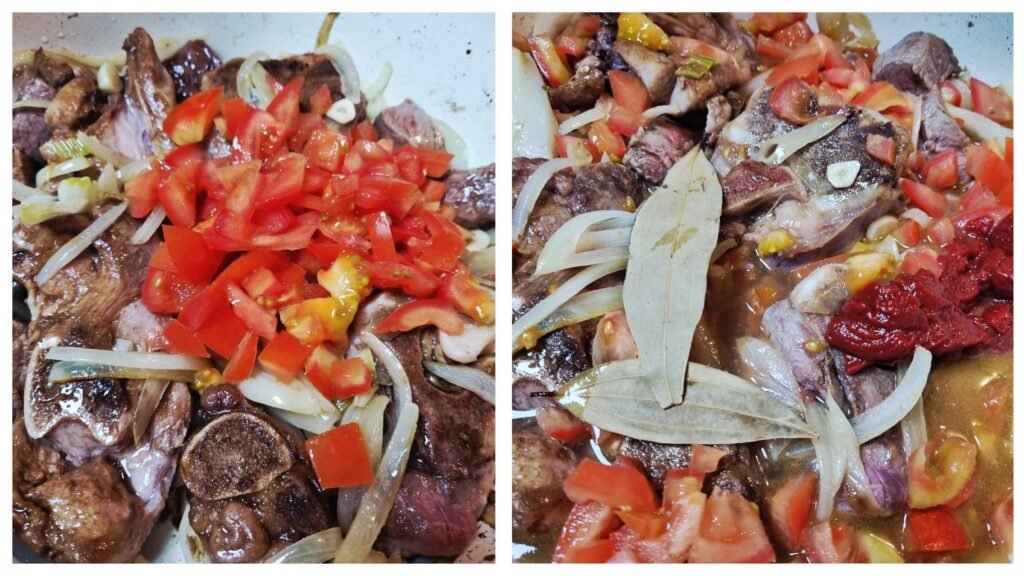
Add the remaining water and simmer for 1 hour and 50 minutes on medium-low heat. Check every 10 to 15 minutes and stir the pot to prevent the gravy from catching on the bottom. If it does, lower the temperature to medium-low or low.
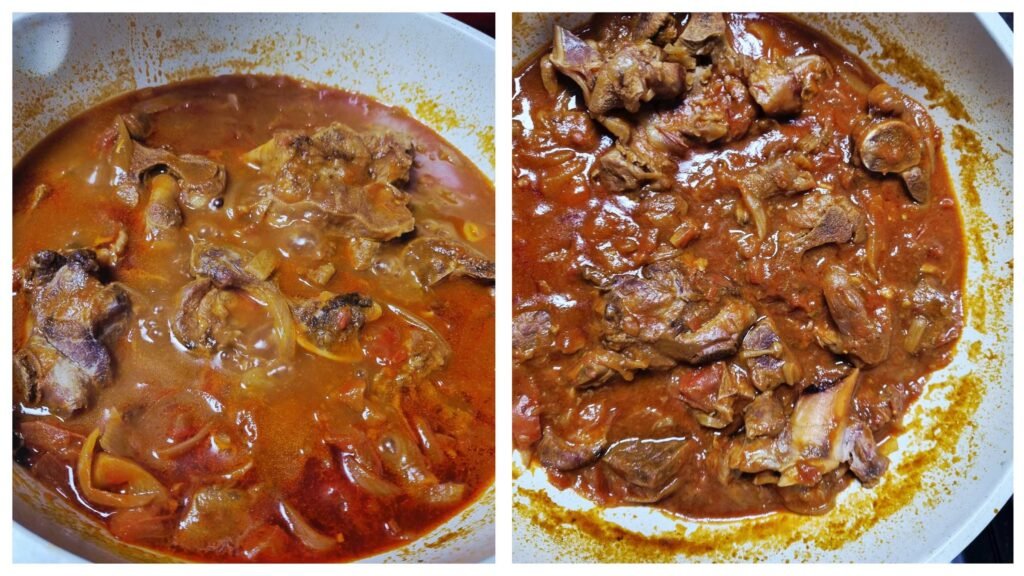
After the cooking time, the osso buco will thicken up and the rich gravy will have thickened in consistency. This recipe is an easy dish to prepare on the stove, you can also bake it in the oven. Use an oven-proof dish and bake veal shanks with a thickness of four to five centimetres for two hours on a temperature of 160–170°C (325°F).
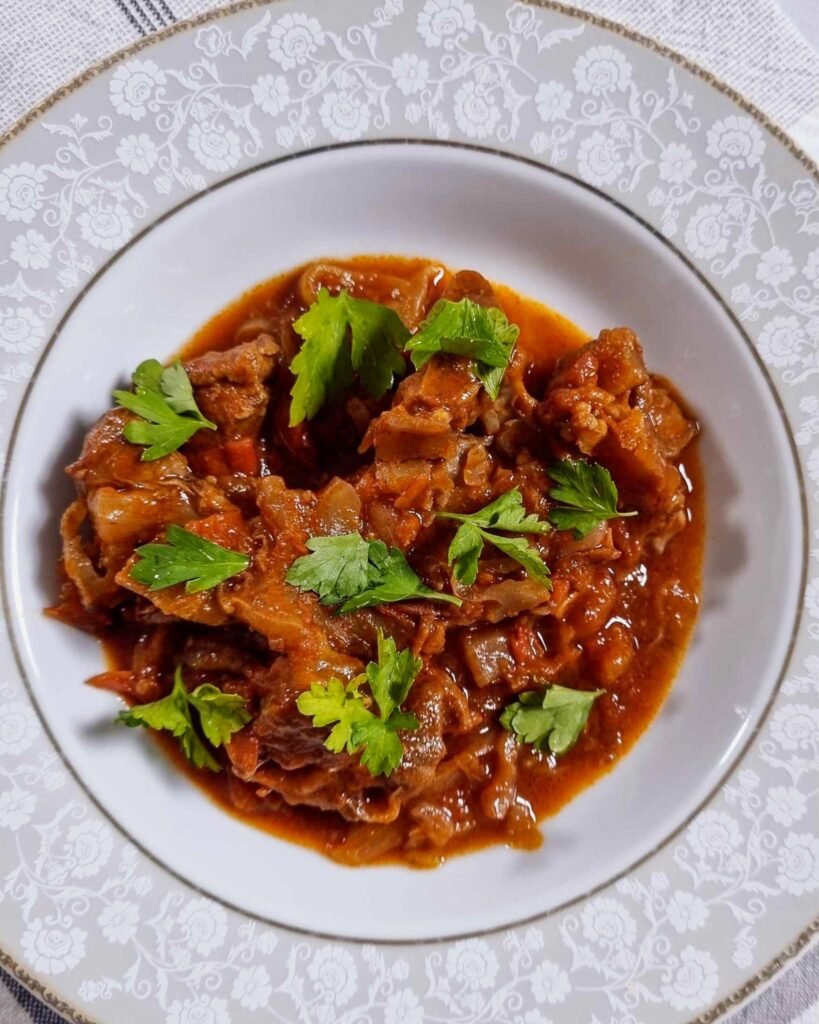
There you have it, the osso buco is ready to eat and enjoy with your friends and family. If you want to make a large batch that lasts throughout the week, double or triple the amounts of the recipe by toggling on the serve amount, this will increase the quantity of the ingredients as well as the serving ratio.
Osso buco can be served with Creamy Mashed potatoes, Grilled Asparagus, Roasted Brussels sprouts. Consider serving with a fresh Caprese salad, Balsamic tomato salad, Red pepper and Rocket Salad. Garlic bread will also compliment the flavours of the osso buco.
Store the osso buco the refrigerator for two to four days. You can also freeze this dish in the freezer, this dish will last for approximate three months. Defrost and reheat in a pot on the stove-top.
